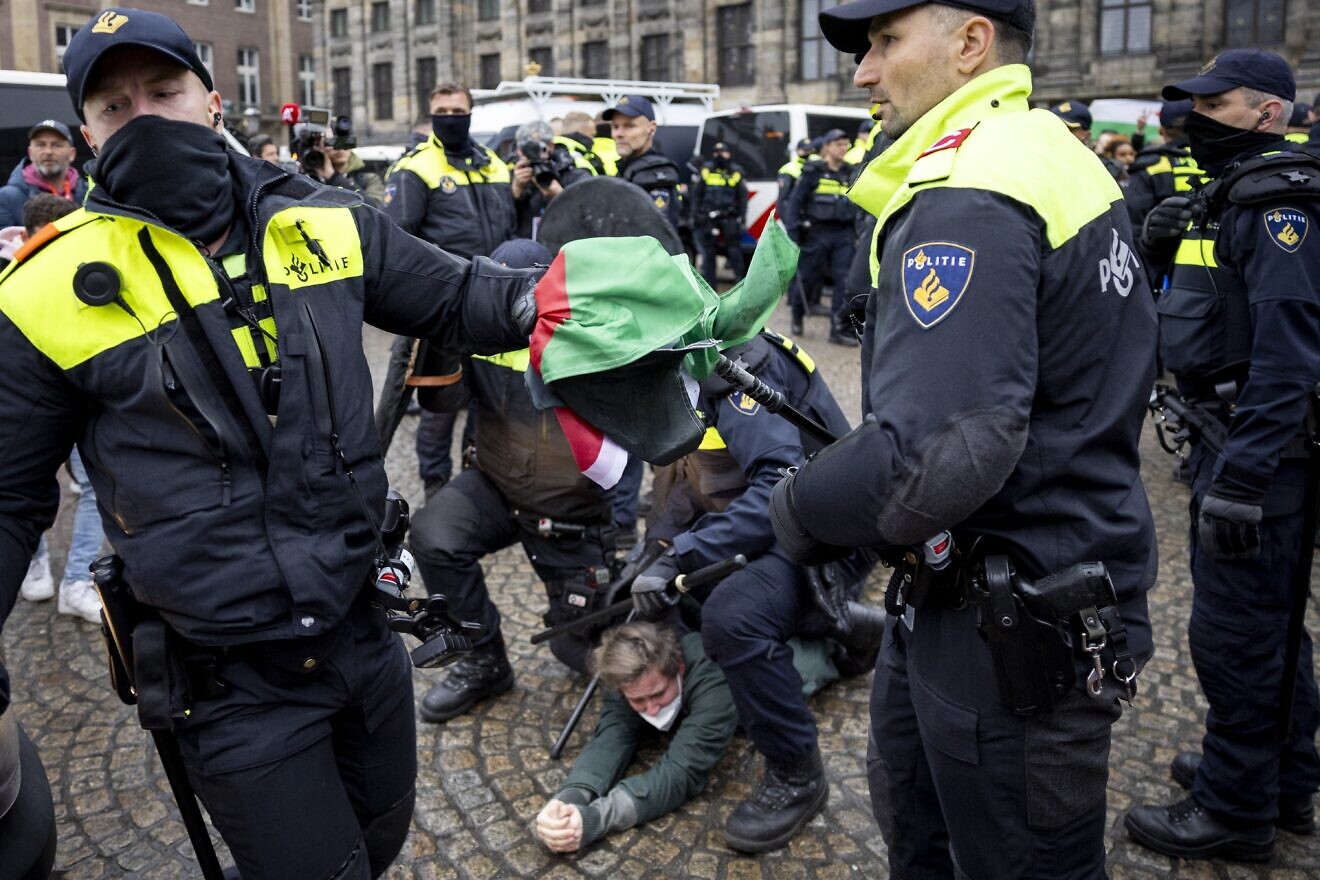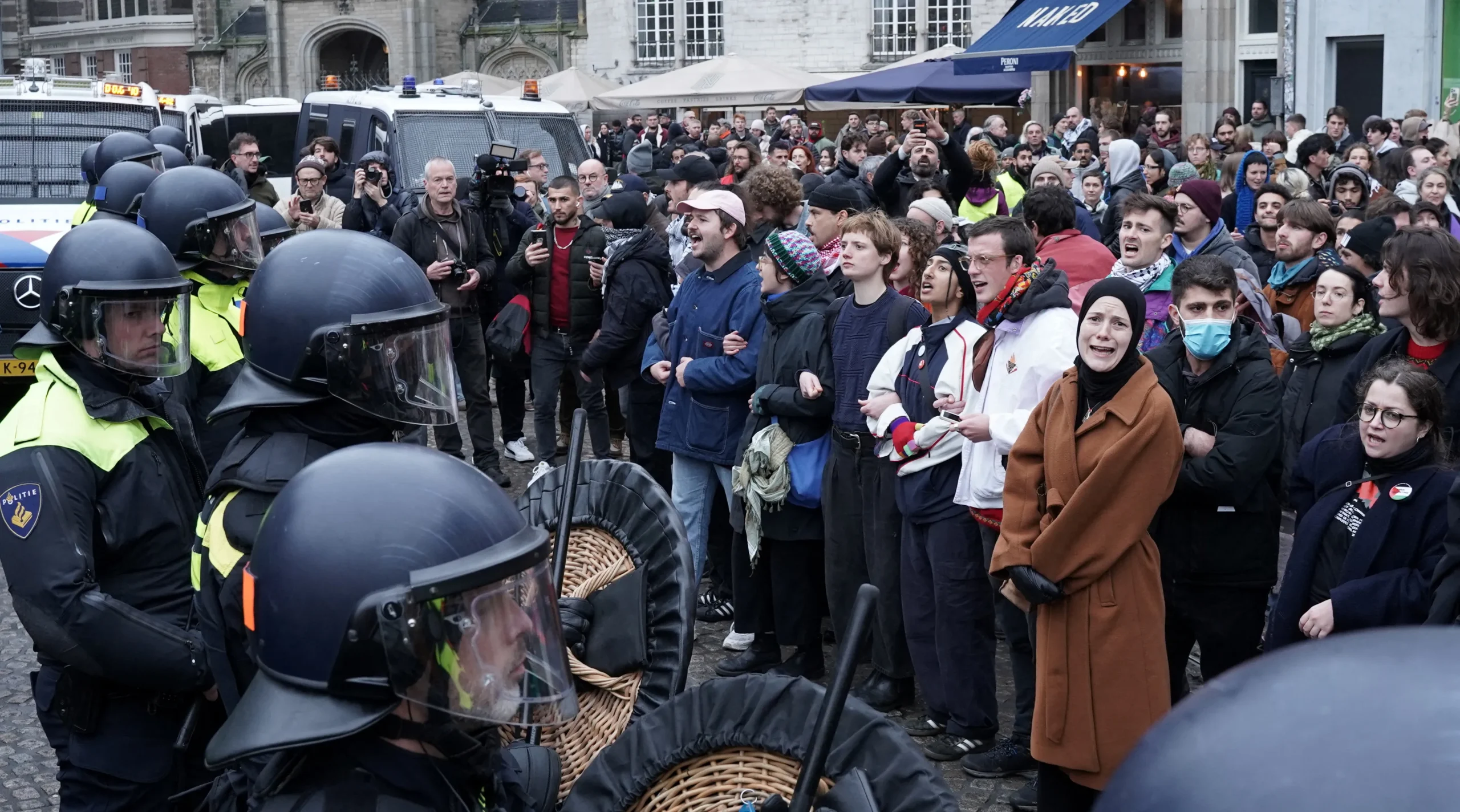Amsterdam is facing ongoing unrest fueled by antisemitic violence, which began last week after clashes surrounding a soccer match between Israeli team Maccabi Tel Aviv and the Dutch club Ajax. The violence has escalated over several days, prompting authorities to impose emergency measures to restore order. These measures include a ban on protests and heightened police presence across the city.
Despite these efforts, the unrest continued, and on Monday, violence erupted in Amsterdam West, with a tram being set on fire and stones thrown at police officers. This chaos followed a series of protests, including a banned pro-Palestinian demonstration on Sunday, which saw over 50 arrests.
Police are particularly concerned about the potential for further violence. Amsterdam’s police chief, Olivier Dutilh, expressed worries about calls for unrest in the city on Tuesday evening, especially with a message urging women and children to stay home.
The violence intensified on Monday, with several incidents including the attack on a passing cyclist and the setting of a police bus on fire in the early hours of Tuesday. The clashes have highlighted the city’s struggles with rising tensions surrounding the Israel-Palestine conflict, which have manifested in violent confrontations.

Amsterdam Faces Escalating Unrest Amid Antisemitic Violence and Clashes Over Israel-Palestine Tensions
In response, Amsterdam has enforced a variety of emergency measures, including a ban on wearing face coverings during potential disturbances. A planned protest related to Gaza has been granted an exemption but will take place in a park away from the city center to avoid further violence.
Jewish institutions in Amsterdam have been given extra security, and the local government has vowed to continue monitoring the situation. The emergency measures are set to remain in place at least until Thursday, with authorities on high alert.
The violence has sparked widespread outrage in the Netherlands, prompting the Amsterdam City Council to hold an emergency debate. The Dutch parliament is scheduled to discuss the violence further, with far-right politician Geert Wilders using the incidents to criticize the country’s open immigration policies.
Wilders has framed the unrest as a consequence of what he describes as a failure to control the influx of migrants. The violence has also been denounced as an “outburst of antisemitism,” with some participants in the unrest expressing extreme hatred towards Jewish individuals.
Amsterdam’s Mayor, Femke Halsema, has condemned the violence, which she described as a toxic mix of hooliganism, antisemitism, and anger over the ongoing Middle East conflict. The mayor revealed that there were discussions about canceling Thursday’s match between Ajax and Maccabi, but authorities ultimately decided it was not legally feasible.
In a public letter, Halsema highlighted the disturbing trend of violent rhetoric in social media channels, including calls for violence against Jewish people. Despite the efforts to manage the unrest, the situation remains tense, with ongoing investigations and arrests as authorities continue to address the crisis.











































